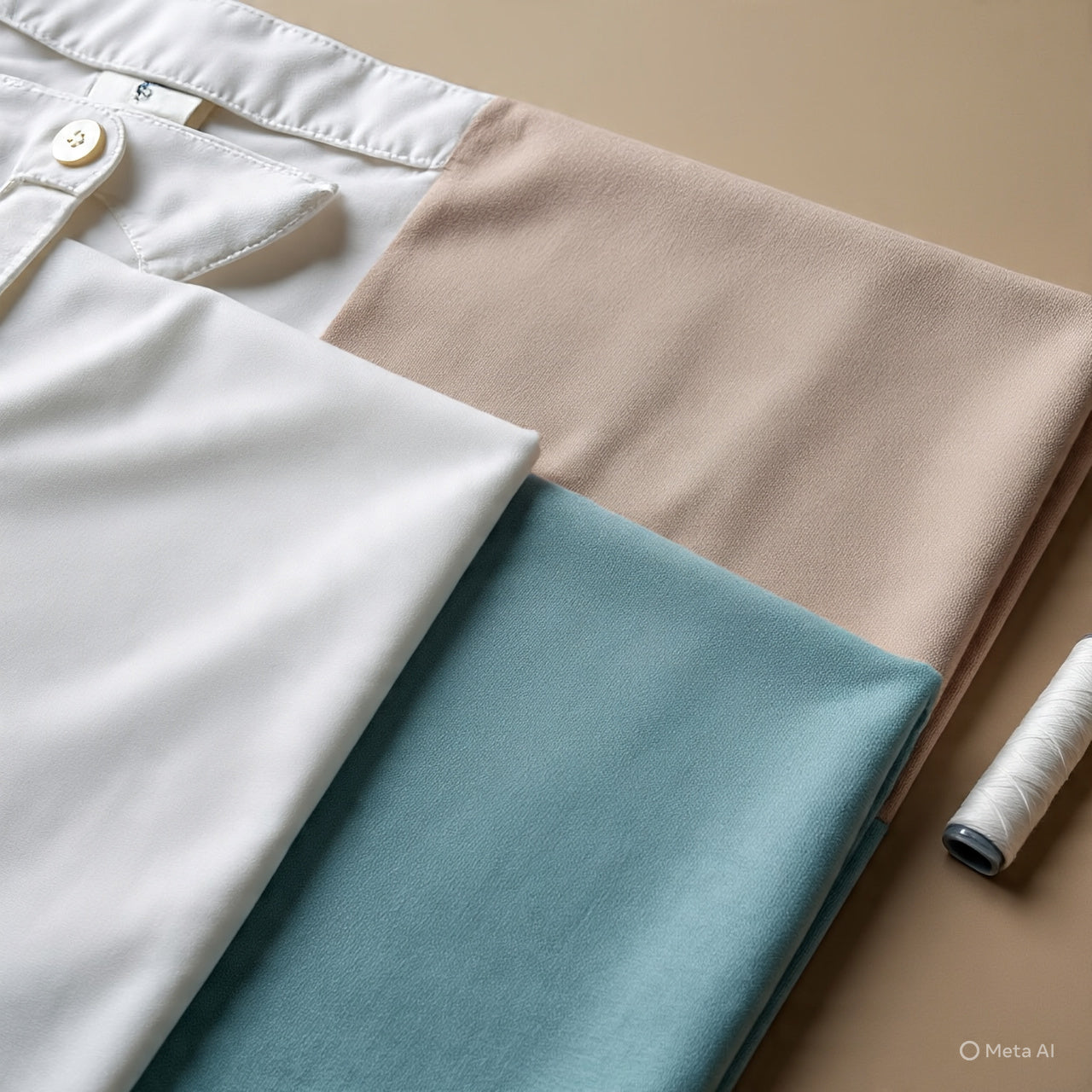The term polycotton is derived from the combination of two words - polyester and cotton. As the name suggests, polycotton fabric is a blend of natural cotton and synthetic polyester fibres. The blend is usually 65% polyester and 35% cotton. However, this ratio may vary depending on the intended use and desirable properties. These days, even 50% blends are quite common in the market.
Polycotton has become increasingly popular because of its durability, easy maintenance and affordability. The robust combination of cotton and polyester results in a fabric that is easy to care for and does not wrinkle easily.
This blog will uncover many important characteristics of polycotton, its applications and the differences between polycotton and cotton.
Characteristics Of Polycotton
- Polycotton is soft to the touch and feels incredibly comfortable on the skin.
- It is a breathable fabric and allows air to circulate, making it a comfortable clothing choice for summer.
- Looking for a fabric that can withstand multiple washes? Choose polycotton as it is a highly durable fabric that is resistant to wrinkles and shrinking. It can also withstand frequent washing and wear without losing its shape or texture.
- Polycotton fabric is easy to care for and maintain. It does not require special cleaning methods. You can machine dry and wash, it also dries quickly. Moreover, it requires minimal ironing.
- Apart from its high durability, it can retain its original colour even after multiple washes.
- Polycotton is highly resistant to shrinkage, it can maintain its shape and size even after washing.
Uses Of Polycotton
Here are some common uses of polycotton fabric:
Home textiles - Polycotton is used in a variety of home textile products, including bed linens, curtains, and towels. It is also used for upholstery, slipcovers, and cushion covers due to its durability and resistance to wear and tear.
Crafts - Polycotton is a popular choice for craft projects, such as quilting, patchwork, and sewing. It is easy to work with and comes in a wide range of colours and prints.
Uniforms - Polycotton is a common fabric used to make uniforms as it is breathable and absorbs moisture. It also feels light to wear. And most importantly it is wrinkle resistant.
Industrial Textiles - Owing to its durability and resistance to water and UV rays, polycotton is used for making bags, backpacks and other outdoor gear. It is also used to make tarps, tents and awnings.
Fashion Clothing - The fabric is a popular choice for both casual and formal wear due to its ability to resist wrinkles, and hold its shape over time. Polycotton is frequently used to make sportswear and other outfits like T-shirts, shirts, pants, skirts and blouses.
Difference Between Cotton & Polycotton Fabric
Durability - Both cotton and polycotton are highly durable. However, polycotton fabric is more durable because of the combination of cotton and polyester fibre.
Wrinkling - Cotton fabric is more prone to wrinkling. Therefore, it requires more ironing and upkeep. Polycotton, on the other hand, wrinkles less because of its synthetic formulation.
Shrinkage - If not pre-shrunk, cotton fabric may shrink after washing. Polycotton fabric is less prone to shrinkage and also keeps its shape after washing.
Costing - Cotton fabric is any day more expensive than polycotton because of its natural origin and superior quality. Polycotton fabric can be a good option if you’re pressed for budget as you can find cheaper alternatives.
Maintenance - Polycotton is the most preferred fabric for everyday wear. This is because it is easy to care for and requires low maintenance. It does not even require frequent ironing. Cotton fabric requires ironing after every wear to remove wrinkles and keep the original shape intact.
Overall, both cotton and polycotton fabrics have their advantages and disadvantages, and the choice between them depends on the specific use and personal preference. Cotton is a natural, breathable fabric that is comfortable to wear, but it is more expensive and requires more maintenance. Polycotton is more durable, affordable, low maintenance and wrinkle free, but it may be less breathable and comfortable in certain situations.
FAQs
Is polycotton good for the environment?
Polycotton is not considered to be an eco-friendly fabric as it is a blend of natural and synthetic fibers. However, it may be a more sustainable choice than 100% polyester as it contains a significant amount of natural cotton fibers.
Is polycotton waterproof?
Polycotton fabric is not waterproof. However, it can be treated with a water-resistant coating to make it water-repellent.
How can we iron the polycotton fabric?
You can start with a low heat setting and gradually increase the temperature until creases in the shirt react.
Conclusion
We hope this blog was helpful to you in understanding the key difference between Polycotton and Cotton. We specialise in making custom cotton and Polycotton pilot shirts for the pilots of prominent airlines around the world. Please check out our product page to get a full understanding of our offerings.

